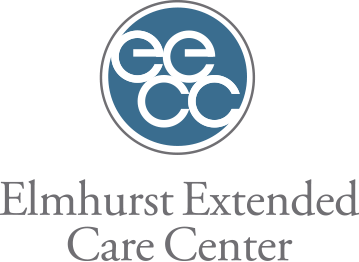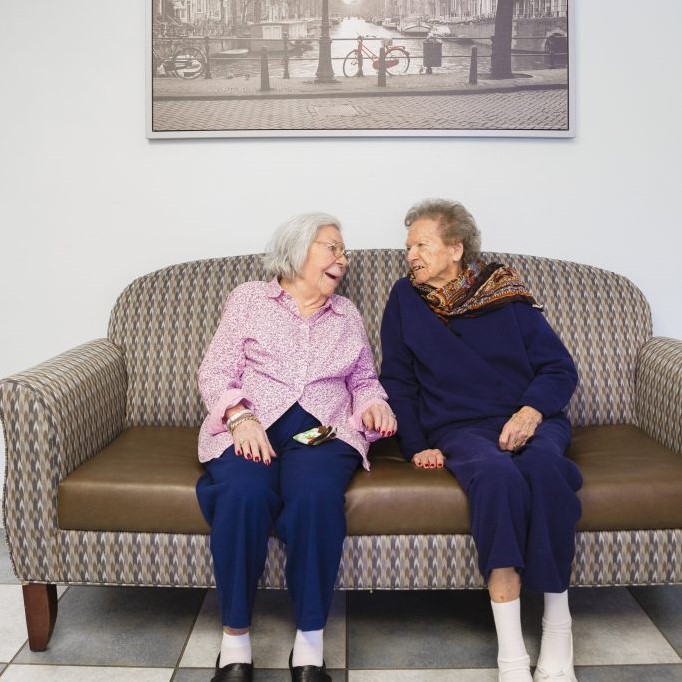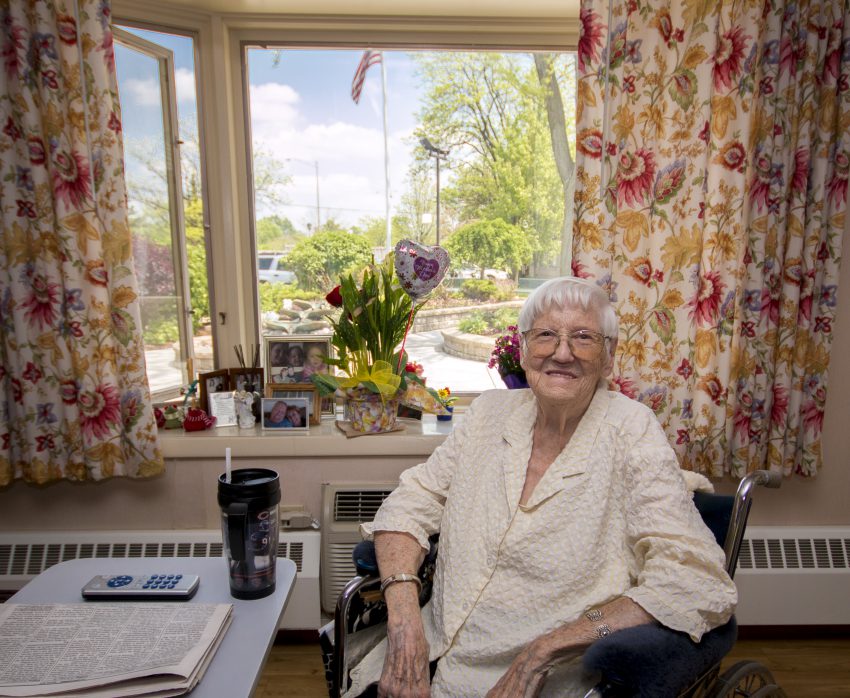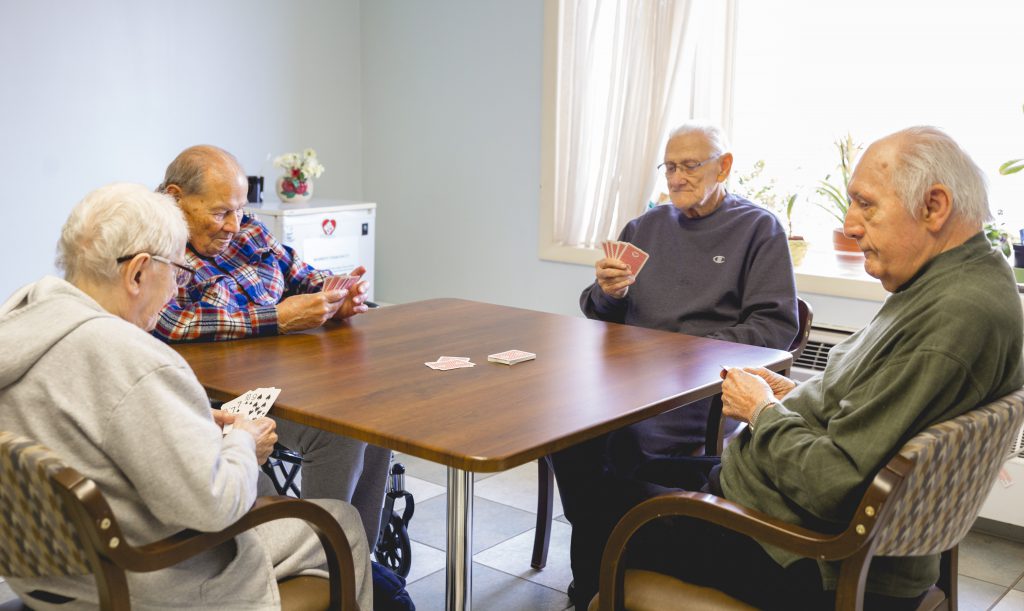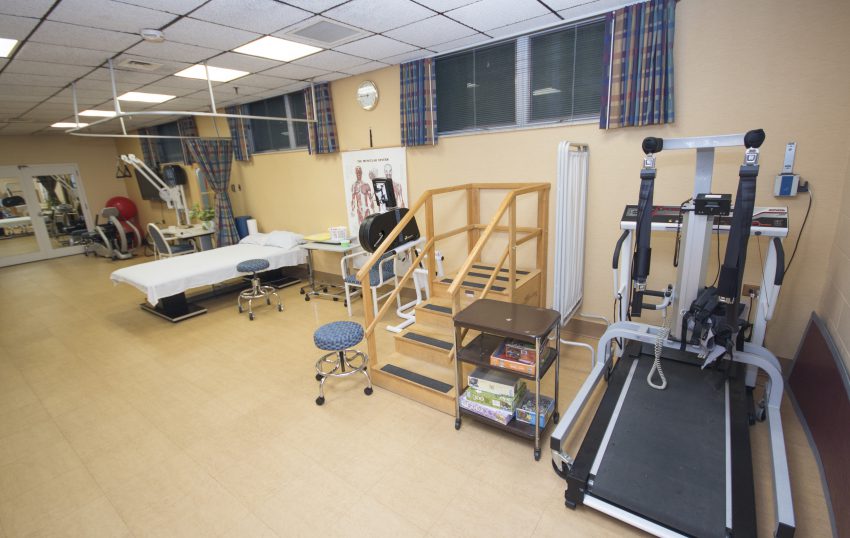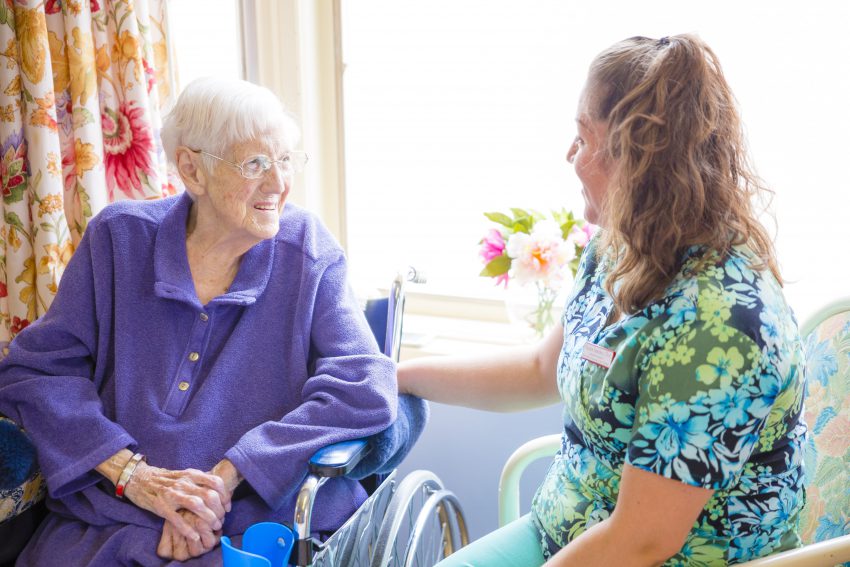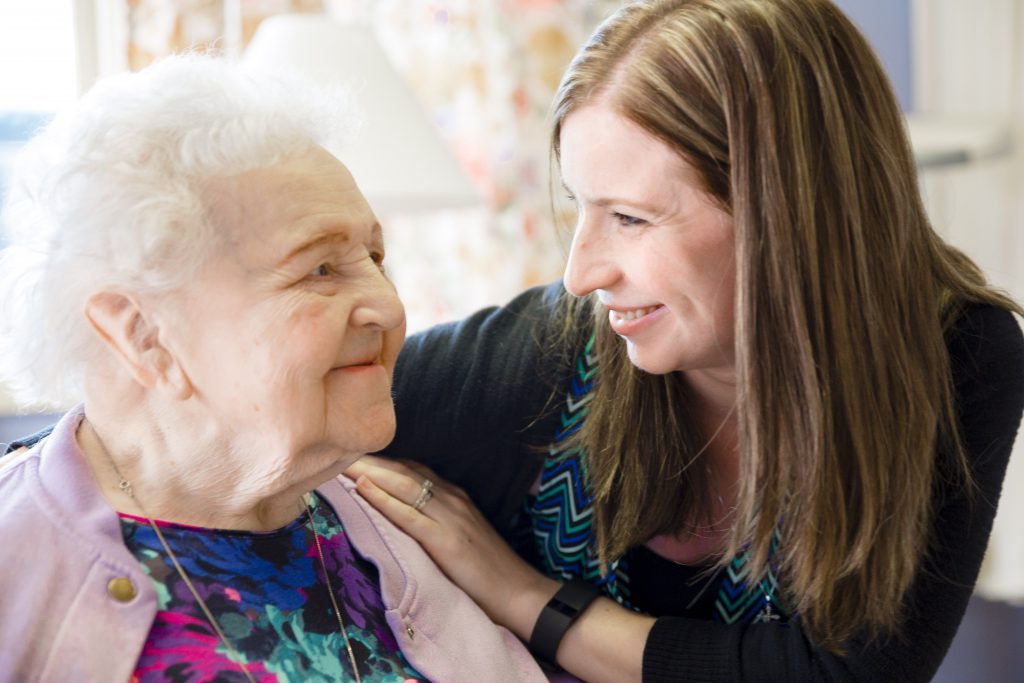“Food is healing, enjoyable, and brings people together.” An Interview with Registered Dietitian for EECC, Christine Fitzgerald.
The daily meals and snacks enjoyed by short and long-term residents at any skilled nursing facility are incredibly important. Better health, both physically and mentally, and longevity of life often go hand-in-hand with a proper diet. We sat down with our in-house Registered Dietitian, Christine, to find out more about the passion she has in her career and how that pairs perfectly with our residents here at Elmhurst Extended Care Center. Here’s what she had to say:
What inspired you to become a Registered Dietitian?
I’ve always had an innate passion for food. I remember rushing home from school to catch the last half of Emeril Live before jumping in to the kitchen to cook dinner with my mom every night. As I became older and involved in athletics, I developed an interest not only in cooking, but in the healing power of food. As a gymnast and swimmer for over 10 years, I was constantly eating to fuel my body and realized that my curiosity towards food was more of a lifestyle than the hobby I initially thought.
Growing up, I was very lucky to have parents who emphasized family meals. Despite our busy schedules, there was always time to sit down together and enjoy a healthy and home-cooked dinner. I learned from a very young age that food is healing, enjoyable, and brings people together. While I didn’t always know I wanted to be a dietitian, I found myself eager to share this love with others and ended up in my first nutrition class.
What things do you take into consideration when planning a menu for residents?
When creating a menu for residents, I prioritize freshness, flavor and variety. I make sure there is something for everyone to enjoy and that our meals are both nourishing and delicious, just as food should be! My go-to when it comes to planning menus is using in-season ingredients to create the freshest and most flavorful dishes possible. I always keep in mind what I would want to eat and strive to make sure the environment is not a barrier against enjoying meals. It’s tough to be away from home. Through physical stress and hospitalizations, many of our residents can feel overwhelmed when they walk through the door.
I’ve found that the quickest way to connect with people is through great food. Taking a little extra time to plan a thoughtful and delicious menu goes a long way towards helping our residents feel at home during their stay.
When a resident has special nutritional requirements, how do you accommodate for those?
Working directly with the residents to fulfill their individualized preferences and nutritional needs is one of the most important parts of my job. The first thing I do is introduce myself to the residents and assure them that their nutritional needs can be met. Typically, residents are eager to discuss meal preferences right away… everyone wants to know what they’re eating! Making that instant connection can really help us get off on the right foot and help new residents feel comfortable. Once the initial interview is in the books, I get to work on communicating needs with my staff and executing requests. With a full commercial kitchen at EECC, we can accommodate pretty much anything!
What are some ways you provide nutritional education to residents at EECC?
Educating the residents is all about individualization. While I enjoy sharing my knowledge of nutrition with others, I recognize that not everyone wants the information. The biggest misconception about dietitians is that we are here to make everyone eat their salad and skip the fries. While a balanced diet is important, it’s not everything. I love inspiring people to have a healthy relationship with food and empowering them to understand there is no such thing as the perfect diet.
With regards to education, some of the residents want detailed information in scientific format. Others prefer a more casual conversation about their lifestyle and ways to achieve nutrition goals at home. I’ve even used food models to help people visualize portion sizes! Nutrition isn’t a one-size-fits all model; Whether it is teaching someone the difference between carbs, protein, and fats, or giving detailed education about dialysis and minerals, nutrition education is intended to best serve the resident and their needs.
Are there ever any circumstances where you work with family members of residents to develop a nutritional plan for their loved one? If so, what does that process typically look like?
Every day! As I described above, I like to meet with new residents ASAP to discuss food preferences and address questions or concerns they may have about their meals. Oftentimes, this initial interview is in the presence of family members and friends. Connecting with the residents’ family members provides invaluable insight from the people who know them best. If a resident isn’t eating well or doesn’t seem to like the food but isn’t vocal about why, in almost every case I’m able to consult a family member to unpack exactly what’s going on.
Whether it’s a missing condiment on the plate, the wrong flavor of juice, or someone who doesn’t like their food to be touching, family members are the best detectives. I often hear that the residents “don’t want to be a bother” to staff so concerns may go unvoiced. We are in business to serve the residents and working with the people who know them the best is absolutely key towards providing excellent care.
What do you enjoy most about your position at EECC?
While I have worked in multiple settings as a dietitian, my time at EECC has already proven to be a wonderful opportunity. My role is both challenging and fulfilling and every day brings about new experiences and opportunities for growth. I love getting to work in multiple settings on a daily basis. Seeing the residents as the dietitian to complete nutritional assessments keeps my clinical knowledge sharp and I get to learn about new trends in science and medicine. Healthcare is very fast-paced and stimulating so experiencing it every day definitely keeps me on my toes!
On the other hand, I have dual responsibilities at EECC and serve as the Dining Director to take on a more managerial approach. I get to work with food safety and sanitation regulations, customizing menus for the facility and I oversee all the procurement and production of meals. Working simultaneously in both avenues is a bit uncommon for a dietitian and has been my favorite part about this role. Every day is a bit unconventional, exciting, and has made me a more well- rounded professional.
